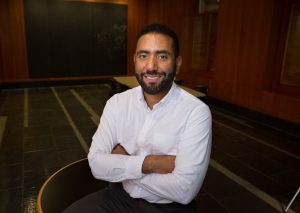The Penn Bioengineering virtual seminar series continues on October 8th.

Speaker: Aaron Streets, Ph.D.
Associate Professor of Bioengineering
University of California, Berkeley
Date: Thursday, October 8, 2020
Time: 2:00-3:00 pm (note the change from our regular seminar time)
Zoom – check email for link or contact ksas@seas.upenn.edu
Title: “Imaging and Sequencing Single Cells”
Abstract:
Recent advances in microfluidics and high-throughput sequencing technology have enabled rapid profiling of genomic material in single cells. Valve- and droplet-based microfluidic platforms can precisely and efficiently manipulate, sort, and process cells to generate indexed sequencing libraries, allowing for high-throughput single-cell analysis of the genome, transcriptome, proteome, and epigenome. Such technology has been instrumental in the global effort to create a human cell atlas, with the ambitious goal of identifying and cataloging all human cell types and cell states in health and disease. However, not all cell phenotypes are directly encoded in the genome and high-throughput sequencing cannot probe the full space of cellular identity. Therefore, microscopy remains one of the most powerful and versatile tools for characterizing cells. Fluorescent imaging and quantitative non-linear optical imaging can reveal morphological characteristics, protein localization, chromatin organization, and chemical composition in single cells. Both single-cell genomics and microscopy can uncover heterogeneity in cellular populations that would otherwise be obscured in ensemble measurement. In this talk, I will discuss a suite of new microfluidic platforms for coupling genomic measurements and optical measurements of the same single cell, and some novel computational approaches to grapple with these new datasets. With a combination of new hardware and software, our goal is to converge on a quantitative and comprehensive understanding of cellular identity.
Bio:
Aaron received a Bachelor of Science in Physics and a Bachelor of Arts in Art at UCLA. He completed his PhD in Applied Physics at Stanford with Dr. Stephen Quake. Aaron then went to Beijing, China as a Whitaker International Postdoctoral Fellow and a Ford postdoctoral fellow and worked with Dr. Yanyi Huang in the Biodynamic Optical Imaging Center (BIOPIC) at Peking University. Aaron joined the faculty of UC Berkeley as an Assistant Professor in Bioengineering in 2016 and is currently a core member of the Biophysics Program and the Center for Computational Biology and he is a Chan Zuckerberg Biohub investigator. Aaron has received the NSF Early Career award and was recently named a Pew Biomedical Scholar.
See the full list of upcoming Penn Bioengineering fall seminars here.
